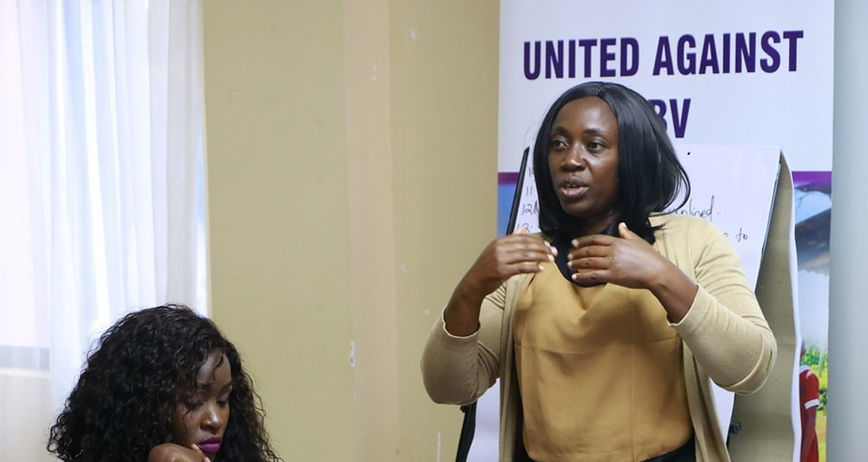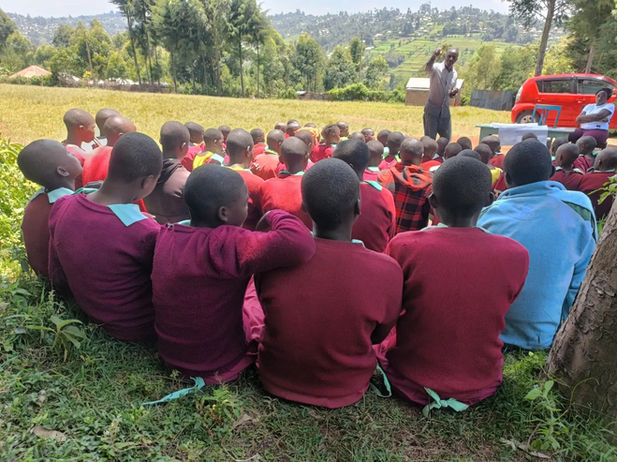Anti FGM Program
Female Genital Mutilation (FGM), also known as female circumcision or female genital cutting, is a cultural practice that involves the partial or total removal of external female genitalia or other injury to the female genital organs for non-medical reasons. FGM is a deeply rooted cultural tradition and a complex social issue that has persisted in various parts of Africa for centuries.
The practice is prevalent in many African countries, with varying degrees of prevalence and different forms of FGM being practiced. It is often linked to cultural, social, and religious beliefs, and communities may view it as a rite of passage, a way to ensure purity, or a means of maintaining social norms and traditions.
FGM is typically performed on girls before they reach puberty, and it is considered a crucial aspect of their initiation into womanhood in some societies. The procedure is usually carried out by traditional practitioners who may not have formal medical training, using rudimentary tools and in unsanitary conditions. This poses significant health risks to the girls and women undergoing the procedure, leading to both immediate and long-term physical and psychological consequences.
Efforts to address and eradicate FGM in Africa have been ongoing, with local and international organizations working to raise awareness, change cultural norms, and implement legal measures to protect girls and women from this harmful practice. Despite progress in some regions, FGM remains a complex challenge, deeply embedded in cultural contexts, and efforts to eliminate it require a comprehensive and culturally sensitive approach.

Manga HEART has taken a proactive stance against Female Genital Mutilation (FGM), recognizing the critical need to eradicate this harmful practice and empower women and girls.
Manga HEART's Anti-FGM Program is designed with the primary goal of eliminating the practice of Female Genital Mutilation in the community. This harmful traditional practice poses severe physical, emotional, and psychological consequences for women and girls, and Manga HEART is dedicated to raising awareness, advocating for change, and providing support to those affected.
Our Strategic Focus
-
We prioritize evidence-based approaches in our policy advocacy, ensuring that our initiatives are grounded in sound research and data.
-
We actively seek out and participate in strategic advocacy forums at the local, regional, and global levels.
-
We committ to enhancing the skills and knowledge of our staff and advocate to effectively engage in policy work.
-
We play a crucial role in the dissemination of policies, ensuring that information reaches the intended audiences.
Our program for GBV prevention and response divides its tactics and interventions into three main categories:
Response
-
Crisis Intervention and Support Services:
-
Develop and strengthen a responsive support system, including helplines and counseling services, for girls at risk of or affected by FGM.
-
Collaborate with local health facilities to ensure immediate and comprehensive medical and psychological assistance for survivors.
-
-
Legal Advocacy and Protection:
-
Advocate for the enforcement of existing laws and policies against FGM, ensuring legal protection for victims.
-
Work closely with legal experts to pursue the prosecution of individuals involved in perpetuating FGM.
-
-
Alternative Rites of Passage (ARPs):
-
Implement and promote alternative rites of passage as a responsive measure, celebrating a girl's transition to womanhood without resorting to FGM.
-
Engage community leaders to endorse and facilitate the adoption of ARPs, ensuring cultural acceptance and sustainability.
-
Prevention
-
Community Awareness and Sensitization:
-
Conduct regular and widespread awareness campaigns within the community to educate residents about the harmful effects of FGM.
-
Engage with local leaders, religious figures, and influential community members to foster a collective commitment to preventing FGM.
-
-
Educational Programs:
-
Implement educational initiatives in schools and community centers to prevent the perpetuation of FGM by informing young girls about the risks and consequences.
-
Provide workshops and seminars for parents, emphasizing the importance of education as a preventive tool against FGM.
-
-
Partnerships for Prevention:
-
Collaborate with local schools, community organizations, and religious institutions to create a network focused on preventing FGM.
-
Facilitate the integration of preventive measures into existing community programs and initiatives.
-
Partnership
-
Collaborative Initiatives:
-
Forge partnerships with local and international organizations, governmental bodies, and NGOs to create a united front against FGM.
-
Share resources, experiences, and best practices to strengthen the overall impact of anti-FGM efforts.
-
-
Engaging Community Leaders:
-
Collaborate with community leaders and elders to gain their support and involvement in anti-FGM initiatives.
-
Work with religious institutions to integrate anti-FGM messages into religious teachings, fostering a community-wide commitment to change.
-
-
Government and Policy Engagement:
-
Engage with government agencies and policymakers to advocate for stronger legislation and policies against FGM.
-
Collaborate with government bodies to ensure the effective implementation and enforcement of laws related to FGM.
-
By structuring around the pillars of Response, Prevention, and Partnership, we aim to create a comprehensive and sustainable approach that addresses the immediate needs of survivors, prevents the continuation of FGM through education and awareness, and builds strong collaborative networks for lasting change within the community.










